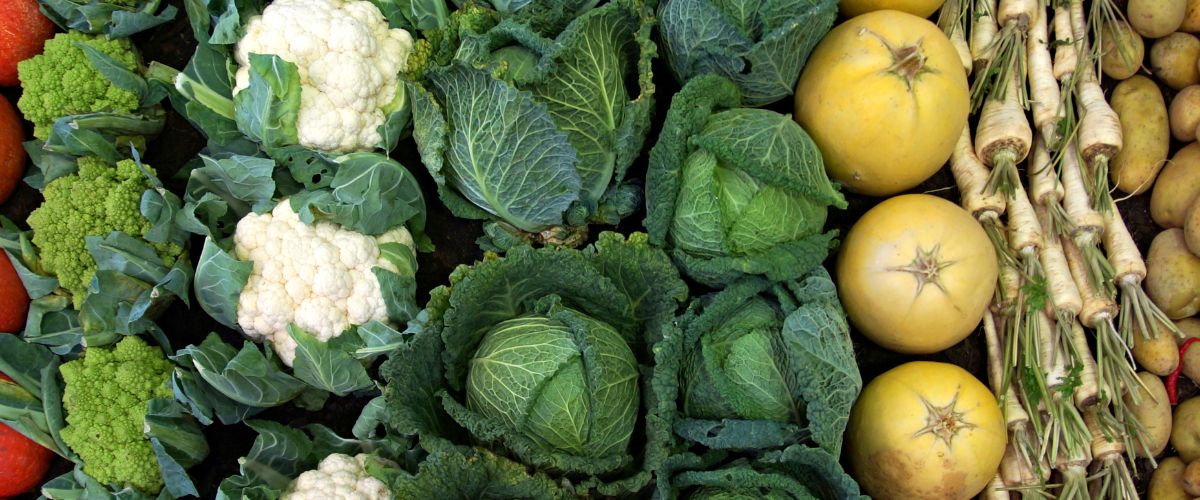Winter Vegetables to Grow in Ireland 🌱
Winter vegetable garden
A winter vegetable garden does take some planning but it is well worth it when you get to fill your fridge and pantry with vegetables you have grown yourself. Some of the plants mentioned below need to be sown in the warmer months but if you have missed the boat this year, you still have an opportunity to get planning for next winter.
Winter carrots:
With a little preparation carrots can be left in the ground to enjoy all winter. Ideally ‘winter carrots’ should be planted mid-summer. When the days are getting colder but before the ground freezes prepare them for winter by:
-
Cover the carrots with 30-45cm of mulch.
-
Cover the mulch with a cover sheet to prevent the mulch blowing away.
As carrots increase their sugar content when it is cold, winter carrots should be extra sweet and delicious, perfect for Christmas dinner.
Winter cabbage plants:
Cabbage is one of the hardiest vegetables there is when it comes to cold weather. Not only can it survive the winter months, it thrives during this time. Winter cabbage should be planted in May and can be left on the ground longer than its spring and summer counterparts.
Use insect mesh to keep out birds and insects and keep an eye out for slugs. Winter cabbage is packed with nutrients and a delicious part of traditional dishes like colcannon or bacon and cabbage.
Brussel sprouts:
Love or loathe them, there’s a reason we associate the humble brussel sprout with the festive season. The nutrient rich cabbage like heads develop during the colder winter months, right on time for the festivities. Although they might be small, brussel sprouts are a mighty source of nutritions.
They are packed full of vitamins including A, B, C and K [vital for heart and brain function] as well as manganese and potassium so they are well worth incorporating into your diet.
Growing peas in winter:
Austrian winter peas have been grown around the world as a source of nutrition over the winter months for many years. Similar to sugar snap peas in taste but with a softer texture, these peas should be planted in autumn. Although they can survive temperatures into single figures, you will need to protect them from frost.
Turnip:
This hardy, cool-weather loving root vegetable can be planted in early autumn. Turnips are fast growing, taking only two to three months to reach maturity. Essential to growing turnips is loose soil and a sunny location in your vegetable patch. Sow them directly into the garden as they do not transplant well. Once harvested turnips can be boiled, baked, roasted or mashed. Enjoy them as an alternative to potatoes, in soups and stews or roasted with other root vegetables.
Vegetables we associate with winter
While there are some vegetables that can be harvested over winter, there are also vegetables grown earlier in the year that are synonymous with autumn and winter because they can be easily stored for long periods.
Growing butternut squash:
Delicious in soups and roasted as a side dish, butternut squash need to be started indoors in mid-spring once frost has finished. They require regular watering and feeding while growing. Once they start forming it’s best to lift the fruit up off the spoil to prevent it from rotting.
Growing pumpkins:
Although pumpkins are most often used in Ireland at Halloween for making Jack ‘O Lanterns they are also delicious to eat and can be stored successfully over winter. Grow pumpkins in a similar way to squash and enjoy in soups, hummus and various kinds of cake or pie. The seeds can be roasted and are a tasty addition to salads and granola.
Winter greenhouse vegetables
Another option for winter growing is to invest in a small greenhouse. This will enable you to grow vegetables all year round. Just some of the vegetables you could grow with the protection of a greenhouse include:
- Garlic
- Salad leaves
- Kale
- Chard
- Radish
If this has you thinking and planning for growing over winter, check out easy vegetables to grow in spring and if space is at a premium, it doesn’t have to stop you growing your own food in containers.
Growing your own vegetables is one way to be more environmentally friendly, switching to Energia is another. Our electricity is 100% renewable.



